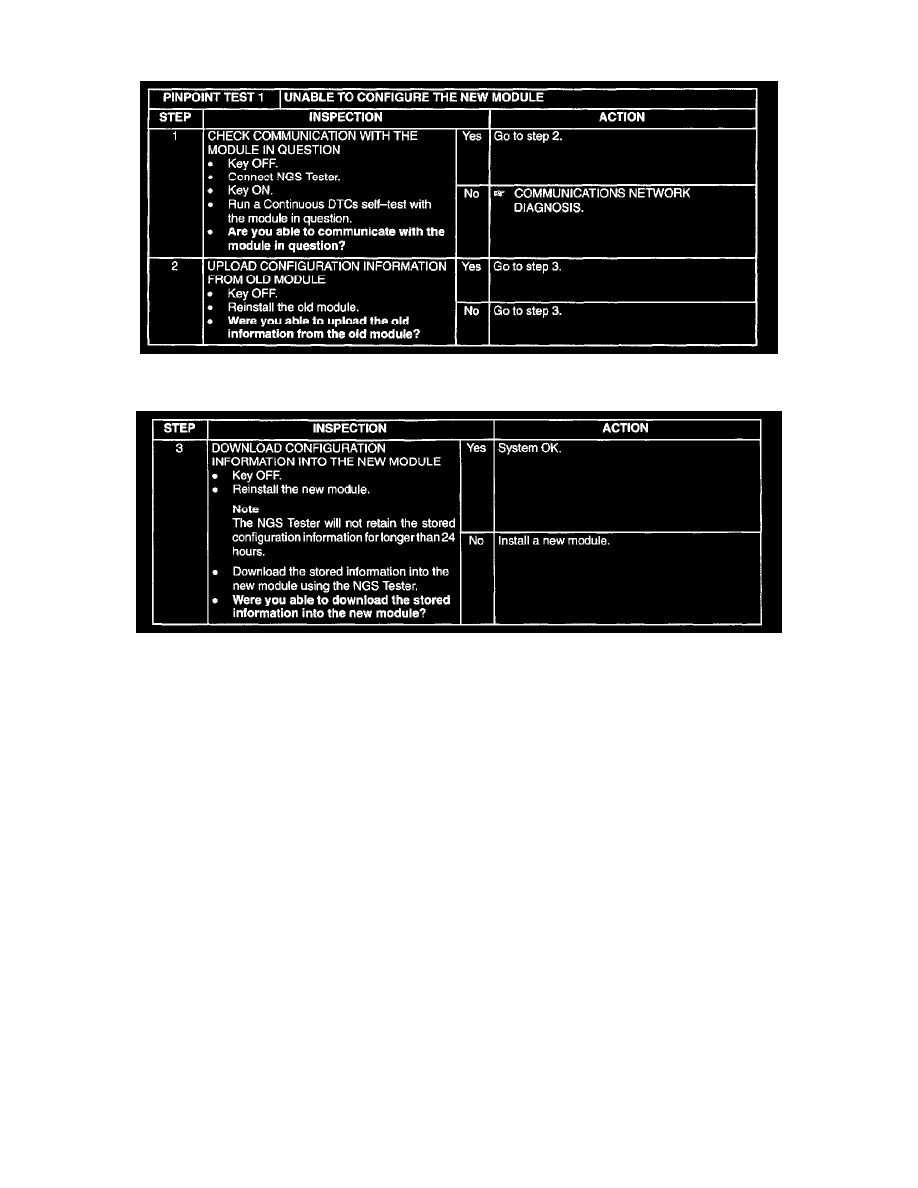B4000 SE Cab Plus 4 4WD V6-4.0L OHV (2000)

Generic Electronic Module/Central Timer Module: Symptom Related Diagnostic Procedures
Steps 1 - 2
Step 3
Principles of Operation
The vehicle has two module communications networks. The Standard Corporate Protocol (SCP) which is an unshielded twisted pair cable (data bus plus,
(TN/OG) wire and data bus minus, (PK/LB) wire), and the International Standards Organization (ISO) 9141 network which is a single wire (LB/WH).
The NGS Tester can connect to both networks through the data link connector (DLC). This makes diagnosis and testing of these systems easier by
allowing one smart tester to be able to diagnose and control any module on the two networks from one connector. The DLC can be found under the
instrument panel between the steering column and the radio.
The ISO 9141 communication network does not permit inter-module communication. When the NGS Tester communicates to modules on the ISO 9141
communication network, the NGS Tester must ask for all information; the modules cannot initiate communications. The SCP communication network
will remain operational even with the severing of one of the bus wires. Communications will also continue if one of the bus wires is shorted to ground or
battery positive voltage (B+) or if some, but not all, termination resistors are lost.
Unlike the SCP communication network, the ISO 9141 communication network will not function if the wire is shorted to chassis ground or battery
positive voltage (B+). Also, if one of the modules on the ISO 9141 network loses power or shorts internally, communication to that module will fail.
The powertrain control module (PCM) is on the SCP communication network. The PCM controls the engine for better fuel economy, emissions control,
and failure mode detection and storage. Refer to ENGINE OBD II MONITORS for diagnosis and testing of the PCM.
The restraint control module (RCM) (air bag diagnostic monitor) is on the ISO 9141 network. The diagnostic monitor controls the deployment of the air
bags based on sensor input. For additional information, refer to AIR BAG SYSTEM ON-BOARD DIAGNOSIS.
The generic control module (GEM) and the central timer module (CTM) are on the ISO 9141 network. Only one GEM or one CTM will be on a vehicle.
The CTM will show up as a GEM on the NGS Tester. The GEM is equipped on vehicles with 4-wheel drive or vehicles with power windows. The CTM
is equipped on vehicles with 2-wheel drive and vehicles without power windows. The GEM controls additional functions that include:
-
4-wheel shift on the fly.
-
One touch down power window.
